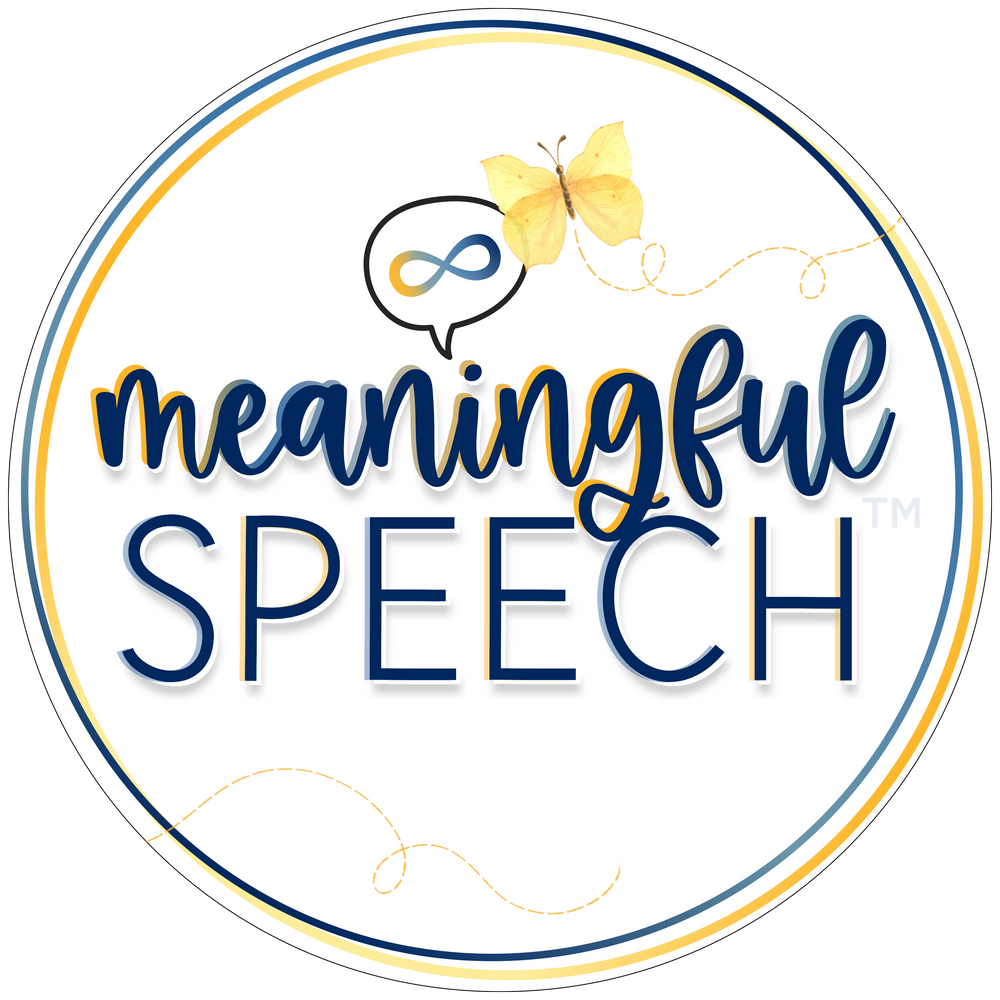Why doing the “Detective Work” is so important when Supporting Gestalt Language Processors
Mar 26, 2025
Gestalt language processors (GLPs) often tie their gestalts to meaningful, emotionally charged experiences. While these gestalts may seem out of context to communication partners, they carry important meaning. By digging deeper and doing the “detective work,” we can uncover that meaning and more effectively support a gestalt language processor’s language development.
Why is doing the detective work so important?
When we take the time to investigate a child’s gestalts, we’re able to build stronger connections by understanding what they’re truly communicating and model meaningful potential gestalts that align with their interests and experiences.
For example, if a child says, “Let’s get out of here!”, they might mean:
- “I’m scared!”
- “It’s time to leave!”
- “Let’s do something different.”
If you do the detective work, you might discover that this gestalt came from a scene in their favorite movie where a character shouts, “Let’s get out of here!” during a tense or scary moment. Understanding this context helps you understand that the child may be using the phrase to communicate feelings of discomfort, a desire to leave, or the need for a change in activity. Without uncovering the original source, you might miss their intended meaning and respond in ways that don’t address their true needs.
How to Do the Detective Work
Here are steps you can take to uncover the meaning behind a gestalt language processor’s gestalts:
1. Connect with Family and Caregivers
Families know their child best. Ask them about the gestalts the child is currently using, where they may have picked them up, and what they might mean. Even if the family isn’t sure, they can often guide you in the right direction.
Example: You’re meeting a new client who may be a gestalt language processor. By talking to the parents, you learn that the child frequently says, “We’ll have to land on the moon and fix the ship!” The parents mention the child loves Bluey, which gives you a clue to explore that show further.
2. Tune In to the Child’s Interests
Find out what shows, books, or songs the child enjoys and check for gestalts within that media. This can give you insight into the original context of their scripts and help you understand their communication more deeply.
Example: You discover the Bluey episode about space and recognize the line “We’ll have to land on the moon and fix the ship!” This helps you piece together what the child might be expressing when they use that gestalt in real life.
3. Use Online Resources to Find Gestalts
Several websites allow you to search for quotes and locate media clips that contain those lines. These tools can be useful when trying to identify the original context of a child's gestalt.
Here are some helpful resources:
Important Note: These websites are not kid-friendly. Since they may pull up videos with explicit content, we do not recommend using them during therapy sessions or around children.
Want to Learn More About Supporting Gestalt Language Development?
- There are many free podcasts, webinars and articles to get you started. A comprehensive list of resources can also be found on our website. We just released a new FREE masterclass on echolalia and child-led therapy that is perfect for anyone starting their learning journey or on the fence about purchasing our courses!
- Consider taking the Meaningful Speech course to learn more about how your child or client processes language, how you can help support them from echolalia to self-generated (original flexible) language, child-led therapy, and neurodiversity-affirming practices. Looking for something shorter? We have a 1-hour introductory course perfect for extended family, daycare or school staff.
- Consider taking our AAC + Gestalt Language Processing course. It will teach you how to identify, evaluate and support gestalt language processors who use AAC or who you think might benefit from AAC.
- Look for a speech-language pathologist (SLP) who "gets it" and can help you in supporting your child's language development. Check out our registry for SLPs who understand gestalt language processing and child-led therapy.
- Are you a school-based or private practice clinician looking for intake forms for new clients/students or creative visual reminder posters for your space? Check out the Meaningful Speech Marketplace.
- Want to learn more about starting a niche private practice? Watch our 1-hour webinar on starting a niche private practice hosted by Alex Zachos and Jess Teixeira from the Meaningful Speech team HERE.
